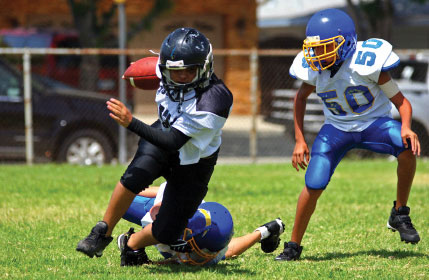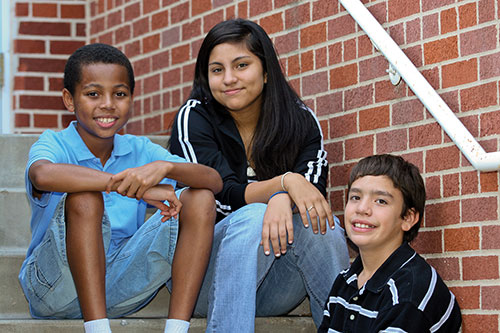Too Much of a Good Thing: Knowing When Your Child Is Overscheduled
 Kids' activities are designed to provide opportunities for growth and development. Connection with others, service to others, learning new skills and developing a sense of accomplishment and self-confidence are valuable life lessons that come from these opportunities.
Kids' activities are designed to provide opportunities for growth and development. Connection with others, service to others, learning new skills and developing a sense of accomplishment and self-confidence are valuable life lessons that come from these opportunities.
Extracurricular activities also provide an avenue for kids to have memorable new experiences, gain insight about themselves and others, develop social, problem-solving and coping skills, and learn tolerances for differences.
All of this engagement outside the home is definitely enriching and worthwhile. But how can you tell if
your child may be overscheduled and is trying to do too much?
-
First, look to the fundamentals. Daily structure and routines, including bedtime, mealtimes and rise time, should remain consistent and within reason. If these areas become compromised, then other important aspects of your child's life will suffer, such as academic performance and family time. Assess the balance between major areas of your child's day, including schoolwork, social activities, community service and family time.
-
Second, determine your family values. For example, what activities do you expect your family to do together, and how often? What emphasis do you place on academics? How much do you value community service or religious involvement? Your child will gravitate toward those events and accomplishments that earn him or her the most attention and rewards. For example, if academics are important, then your son or daughter should receive appropriate applause for school achievements. They will follow your lead and quickly come to recognize what is valued.
-
Third, assess your child's behavioral balance. Look for specific changes in your child, such as increased irritability or intolerance, emotional over-reactivity, compromised academic performance and struggles in coping with life's ups and downs. Although most activities provide an outlet for social engagement, kids who are overcommitted may be prone to isolation and withdrawal. Common sense balance is the key to getting the most out of extra activities. If your child's participation in an activity is more important to you than it is to them, then it's probably not the right activity for your child.
-
Finally, look at how you (the parent) are affected by your kids' involvement in extracurricular activities. If you find yourself getting flustered or your personal life is suffering (not enough sleep, unhealthy eating habits, lack of exercise, not getting tasks done at home, increased anxiety about time, etc.), then perhaps your son or daughter is overextended.
 Extracurricular activities provide a great opportunity for kids to develop a healthy personal balance as well as a sense of values. Promote your family to be active and engaged and encourage your child to participate in at least one organized activity. Consider your parenting values and fundamentals and be sure to establish reasonable expectations. Keep in mind that down time is essential as well and follow your child's lead when taking on too much seems to be taking too much out of him or her.
Extracurricular activities provide a great opportunity for kids to develop a healthy personal balance as well as a sense of values. Promote your family to be active and engaged and encourage your child to participate in at least one organized activity. Consider your parenting values and fundamentals and be sure to establish reasonable expectations. Keep in mind that down time is essential as well and follow your child's lead when taking on too much seems to be taking too much out of him or her.
Download Printable Version
Kid Tips;Family and Parenting
